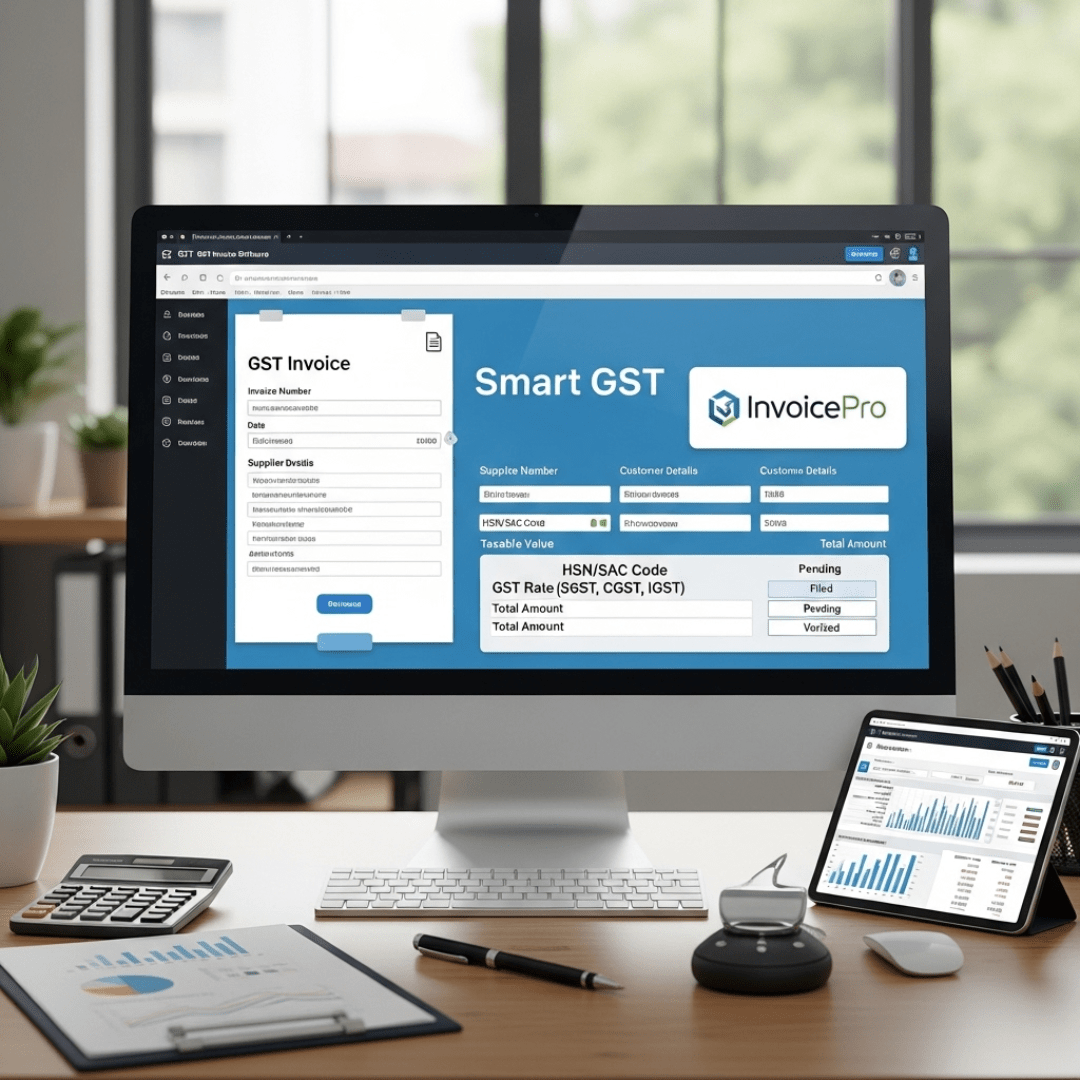Future Trends in GST Billing Software Every Business Should Know
In today's fast-paced business environment, it is equally important to remain in accordance with tax rules as well as maintain profitability. The goods and service tax (GST) shall depend on effective billing solutions to ensure accuracy, transparency, and compliance, with the spine of India's indirect tax system. As technology develops, GST billing software also undergoes rapid changes. Furthermore, many future trends are designed to redefine the way of challenges, taxation, and financial management. Let's find the best future trends in GST-billing software that any business should know.
1. AI-Powered Automation
Artificial Intelligence (AI) is transforming the way the working process of billing and taxation is performed. The next generation GST billing software will incorporate AI to:
- Automate processes like tax processing, data handling, and reconciliation.
- Give intelligent recommendations on tax-saving potentials.
- Identify errors and fraudulent behavior in invoices.
Automation, assisted by AI, will help businesses save time, minimize manual errors, and generally enhance compliance.
2. Cloud-Based Accessibility
Cloud technology is no longer a luxury but is becoming a necessity. Cloud-based GST billing software enables businesses to:
- Anytime, anywhere access to data.
- Work with various teams and branches.
- Safely store financial records without an intensive IT infrastructure.
The future billing systems will most likely provide hybrid models, and companies will have the freedom to utilize a mixture between on-premise and cloud storage as per their requirements.
3. Mobile-First Solutions
The move towards mobile computing cannot be ignored. Because smartphones have taken over the workplace, GST billing apps will be more feature-rich and easy to use, enabling a business owner to:
- Generate invoices on the go.
- Track payments in real time.
- Get immediate GST remittance notifications.
Mobile-first GST billing solutions also make sure that businesses are not confined to desktops and allow them to operate faster and more adaptively.
4. Integration with ERP and Accounting Tools
Seamless integration is a major demand for future-ready GST billing software. Instead of working in isolation, billing systems will connect directly with:
- ERP platforms for smooth supply chain management.
- End-to-end financial reporting and accounting software.
- Real-time payment reconciliation banking APIs.
This integration helps to eliminate duplication, enhance efficiency, and give one perspective of business operations.
5. Data Security and Compliance Enhancements
Security is one of the main concerns with sensitive financial information stored in cyberspace. The future GST billing software will consist of:
- Transactional end-to-end encryption.
- Multi-factor authentication to avoid unauthorized access.
- Automation of changes to meet the most recent GST requirements.
Businesses are guaranteed that they will not be violated and their financial information will be protected against cyber attacks.
6. Advanced Analytics and Reporting
Information is the new lifeline to business. GST billing software will become more oriented to analytics as it will provide:
- Live monitoring of sales, costs, and tax liabilities.
- Predictive insights to improve cash flow management.
- Decision-making and audit reports that can be customized.
The insights enable businesses to make sound strategic decisions instead of simply complying.
7. Voice and Chatbot Assistance
User experience is being redefined through conversational interfaces. Future GST billing solutions may include:
- Voice commands for generating invoices or checking due payments.
- Chatbots that provide instant answers to GST-related queries.
- AI-driven support for troubleshooting software issues.
Such features reduce dependency on manual learning and make software usage effortless.
8. E-Invoicing and Global Compatibility
As many businesses in India switch to using e-invoicing, any future GST billing software will be optimized to:
- Create standardized e-invoices that are in accordance with the standards of the government.
- Quickly adapt to the new GST updates or international tax reform.
- Encourage international business transactions.
This makes the team more compliant and future regulatory changes.
Conclusion
GST billing software is getting upgraded to be more than a mere compliance tool and is turning out to be a business enabler. Automation, adoption of cloud solutions, advanced analytics, AI-driven insights, and smooth integrations will be on the frontline in the future. In the case of businesses, investing in future-proof billing solutions will not make the process of tax compliance easier, but will also lead to increased efficiency, higher security, and business growth opportunities.





